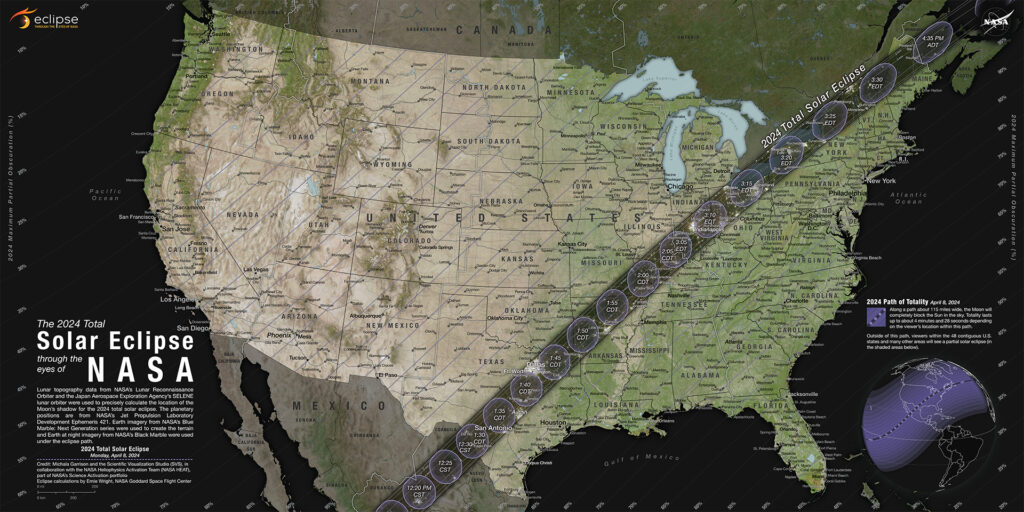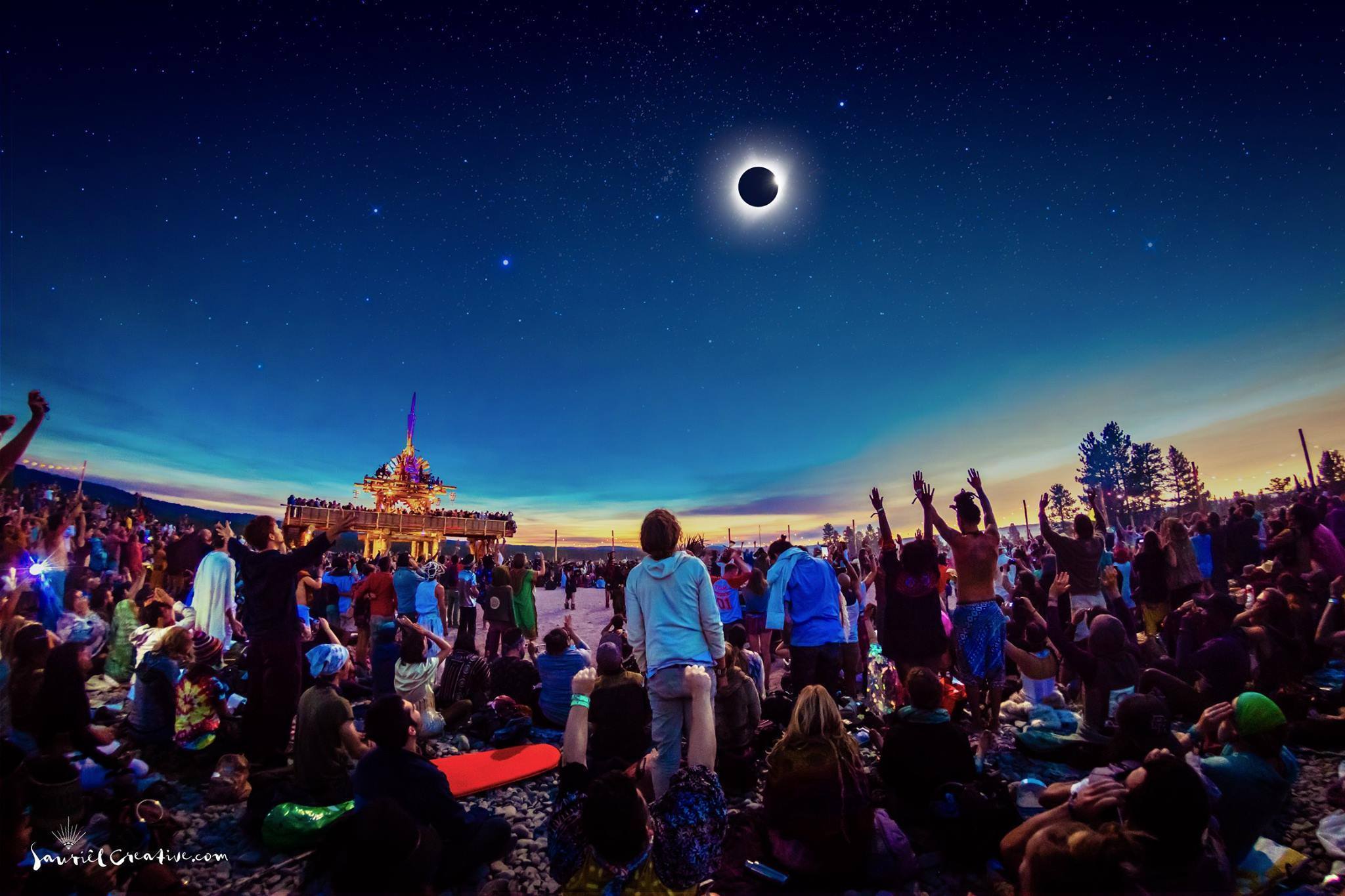If Oregon's 2017 total solar eclipse is any indication, travel to the eastern side of the U.S. to view April 2024's redux is going to be crazy.
Quaint towns and remote areas across the U.S. are gearing up for an influx of eclipse enthusiasts eager to witness the awe of a total solar eclipse this April, stretching from Texas to Maine.

The eclipse is scheduled to occur on April 8, 2024. The path of totality, where the full eclipse can be observed, will stretch across North America, from Mexico through the United States and into Canada. This makes it a significant event for a large portion of the continent, particularly because total solar eclipses in any given location are rare, typically occurring about once every 375 years (even though the 2017 eclipse event is relatively recent).
Local leaders and tourism officials in the eclipse's direct path have been proactive, bringing in additional supplies like fuel and portable restrooms, and advising both locals and visitors to plan ahead. Some areas have even declared emergencies to secure further support, echoing measures typically seen post-natural disasters. In Oklahoma, even the National Guard is being called in to assist.

The anticipation of traffic jams and other challenges has led to numerous schools across states such as Texas, Indiana, Ohio, New York, Pennsylvania, and Vermont to close or pivot to online instruction.
The preparations stem from experiences during the last total solar eclipse in 2017, which saw small towns like Madras and Mitchell, Oregon, overwhelmed by visitors, leading to shortages of gas, food, and restroom facilities. Learning from the past, locations expected to draw large crowds are aiming to better manage the situation this time.

Cell phone connectivity may be unreliable in prime viewing areas due to high demand, with officials recommending emergency kits that include chargers and printed maps. Key contacts should be noted down in case digital communication networks are overloaded.
Residents in expected high-traffic zones are advised to stock up on essentials well in advance, reflecting strategies for dealing with significant snowstorms. Some regions have declared disasters in anticipation of the event, to facilitate better resource management and public safety.

Even regional airports and maritime authorities are preparing, with additional resources and volunteers ready to support the expected surge in visitors and activities. Offshore, Coast Guard patrols are planned for Lake Erie, and skydivers in New York are preparing for a unique aerial view of the eclipse.
Emergency services are on high alert, with concerns over potential eye injuries from improper viewing of the eclipse and the likelihood of increased traffic accidents. The experience from 2017, where travel times significantly extended post-eclipse, underscores the importance of meticulous planning.
Despite the expected disruptions, the message from tourism officials is clear: prepare thoroughly but don't forget to relish this extraordinary celestial event.













